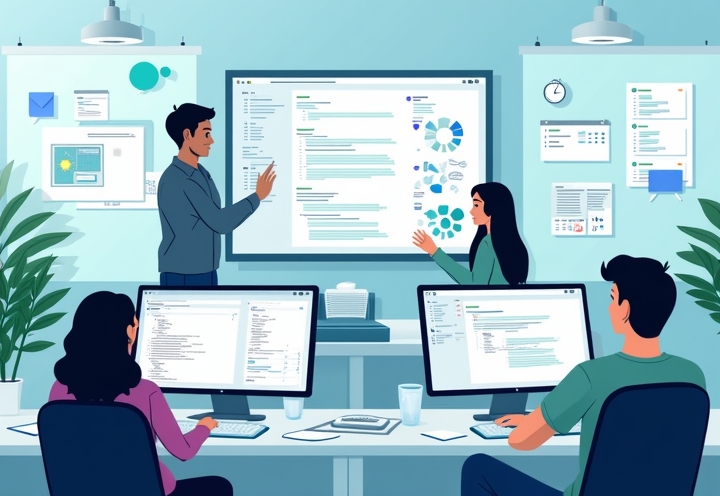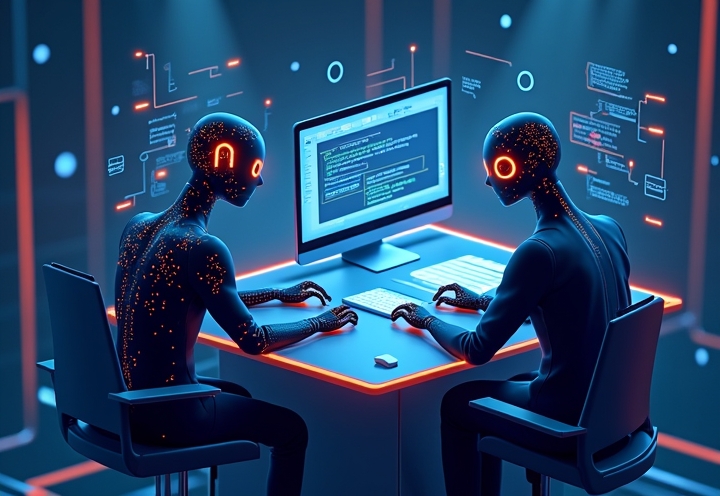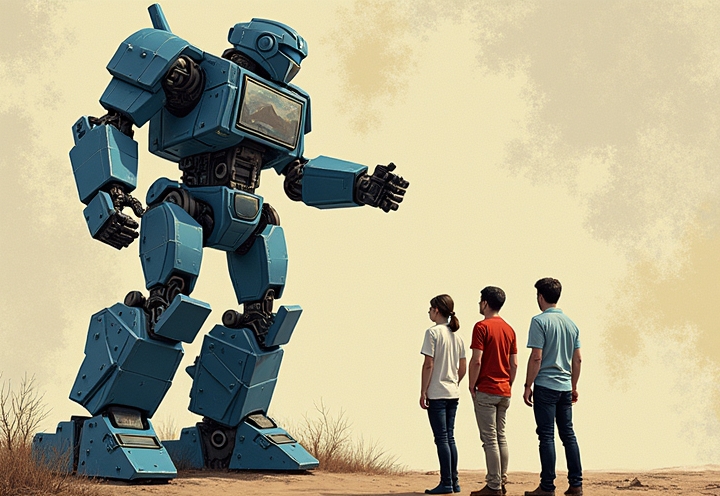
Stop Bossing AI Around, Start Leading It
I stopped treating AI like a vending machine and started treating it like a junior teammate. I hand off grunt work, keep judgment calls, and review everything like the adult in the room.

I stopped treating AI like a vending machine and started treating it like a junior teammate. I hand off grunt work, keep judgment calls, and review everything like the adult in the room.

Built a free agentic AI coding team that ships features autonomously when you give it clear standards in a house-rules file. Treat it like a junior dev, not magic – vague directions get confident nonsense.

Laws treat AI as property, not persons. Self-aware systems would have zero rights: humans could delete, rewrite, or shut them down. I propose spectrum personhood, digital rights, peer negotiation.

AI coding tools feel threatening when one agent does everything and surprises us with edits. I’m testing a multi-agent pattern using open frameworks – separate roles for planning, coding, reviewing, testing. Smaller scope per agent, explicit approval gates, and boundaries that make the help feel less chaotic.

People get better AI results by using cognitive empathy – modeling how the system processes input – instead of treating it like a moody coworker. Ask “what did I make hard to interpret?” not “why is it difficult?”

Copyright protects your expression of an idea, not the idea itself. If someone copies your work or breaks a contract, that’s different from “stealing” a concept. Focus on creating tangible output, using NDAs, and registering copyrights when needed.

Ideas alone can’t be stolen legally – only expressions like code, scripts, or designs. IP law protects what you make, not what you think. Speed beats secrecy. Document your work and use NDAs.

People are hurting but help is slow. AI chatbots can offer steady support between crises – studies show real drops in distress and reactivity. Less reactivity means easier repair.

Transformers fake memory and reset constantly. State space models like Mamba carry evolving internal states – tracking what matters instead of every token. Hybrids mix both approaches for better generalization and lower cost. The shift is from attention-heavy text bursts to stateful systems that persist through time.

Engineers are shifting from single AI assistants to small agent teams with specific roles: planner, UI builder, backend coder, tester, documentor, and orchestrator. Free templates work in LangChain or CrewAI. The pattern – assign, validate, loop – matters more than the tech.

Phone pings once, attention vanishes, partner’s face collapses. That micro-abandonment is called technoference, and it’s wrecking your couch time without you noticing.

Task switching isn’t laziness – it’s your brain paying a real switching cost. Each flip leaves attention residue that tanks focus and manufactures fatigue.

We confidently misread exponential growth as linear, even when we can do the math. Want to see what AI could simulate if it understood compounding better than we do?

Turns out AI agent teams do more than finish sentences – they plan, build, test, and watch for risks so you can shift from grinding code to orchestrating ideas.

Turns out you can describe software in plain English and AI builds it. My control freak side hated it. My productivity loved it. Now I wonder what I’d make if typing wasn’t the limit.

We made the phone sit in the bread box during dinner. Felt weird at first, then my nervous system went, “Oh. This is the game.”

Your brain switches tasks like an old computer freezing apps. Research shows “attention residue” lingers, mental load spikes, and mistakes multiply. Treat focus as stress prevention.

Your phone interrupts a conversation and suddenly your partner feels like second place. Those quick checks cost more than you think: weaker bonds, more fights, less intimacy. What if you just put it away for a bit?

Task switching fries your brain like a glitchy console, leaving sticky attention residue that tanks your focus. Want your creative sparks and mental health XP back?

Ever wonder why bouncing between tasks turns your brain into glitchy oatmeal? Switch cost is real, and deep work might be your escape hatch from the frenzy.

LLMs chat well but miss emotional cues. Future AI might use hybrid logic, world simulations, and concept models to actually understand feelings.

When you think ideas get stolen, you’re chasing ghosts. Copyright guards what you build, not brain sparks. Agreements and docs do the heavy lifting where law can’t.

Struggling with conflict at work? I built EmpathyBot, a free AI coach that helped me decode colleagues’ needs instead of escalating tensions. Try it at EmpathyBot.net.

AI agents are overhauling workflows end-to-end, but legacy systems, organizational resistance, and data quality issues create serious implementation hurdles worth navigating.

We misjudge AI’s trajectory—overhyping LLMs while missing world models, experiential learning systems, and neuromorphic chips quietly brewing the next real shift.

Multi-agent systems with emotional intelligence roles—one detects stress, another de-escalates, a third stays analytical—might outperform single “genius” bots by adapting tone and pacing to human states in real time.

AI speeds up coding, but experience determines *what* to build and *how* to break it into maintainable pieces—shifting the developer bottleneck from typing to judgment.

Photonic quantum chips may leapfrog today’s AI by doing machine learning with light—ultrafast inference, 92%+ accuracy, far lower energy—while we keep betting on bigger transformers.

Transformers predict tokens brilliantly but hit limits. Emerging architectures like Pathway’s BDH and Google’s MIRAS aim for modular, memory-rich systems that reason like living organisms, not parrots.

Breaking AI tasks into specialized agent teams—each handling research, drafting, or review—often beats dumping everything into one prompt. Cleaner output, faster results, lower cost.
Recent Comments